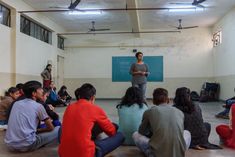
The intersection of sexual health education in schools and the influence of controversial figures like Andrew Tate presents a complex challenge in today’s educational landscape. This topic requires a nuanced examination of how traditional sex education curricula are adapting to address the impact of social media influencers on young people’s perceptions of relationships and sexuality.
Andrew Tate, a former kickboxer turned social media personality, gained notoriety for his provocative and often misogynistic views on gender roles, relationships, and masculinity. His rise to fame, particularly among young male audiences, has raised concerns about the potential negative impact on adolescents’ understanding of healthy relationships and sexual behavior.
Traditional sexual health education in schools typically covers topics such as anatomy, puberty, contraception, sexually transmitted infections, and consent. However, the rapid evolution of social media and the rise of influencers like Tate have created new challenges that many existing curricula may not adequately address.
Some progressive schools and educators are recognizing the need to incorporate media literacy and critical thinking skills into their sexual health programs. These updated approaches aim to help students navigate the complex world of online information and influences, including:
- Analyzing social media content: Teaching students to critically evaluate the messages they encounter online, including those from influencers like Tate.
- Discussing healthy relationships: Emphasizing respect, equality, and consent in relationships to counter potentially harmful narratives.
- Exploring gender stereotypes: Encouraging students to question rigid gender roles and expectations promoted by some influencers.
- Promoting digital citizenship: Teaching responsible online behavior and the potential consequences of sharing or promoting harmful content.
- Addressing misinformation: Providing students with tools to fact-check claims about sex and relationships encountered online.
However, the extent to which schools are successfully tackling the influence of figures like Andrew Tate varies greatly. Factors such as regional differences in education policies, community values, and resource availability can impact how comprehensively these issues are addressed.
Challenges in addressing this issue include:
- Rapid changes in online trends: The fast-paced nature of social media makes it difficult for education systems to keep up with the latest influencers and their impact.
- Parental concerns: Some parents may object to schools discussing specific influencers or controversial topics.
- Limited resources: Many schools lack the funding or trained personnel to implement comprehensive media literacy programs.
- Inconsistent policies: Variations in sexual health education requirements across different regions can lead to inconsistent approaches.
Despite these challenges, there is a growing recognition of the need to evolve sexual health education to address the realities of the digital age. Some organizations are developing resources and training programs to help educators tackle these issues effectively.
In conclusion, while some schools are making efforts to address the influence of figures like Andrew Tate within their sexual health education programs, it remains an ongoing challenge. The effectiveness of these efforts varies, and there is a clear need for continued adaptation and improvement in sexual health curricula to adequately prepare students for the complex realities of relationships and sexuality in the digital age.




